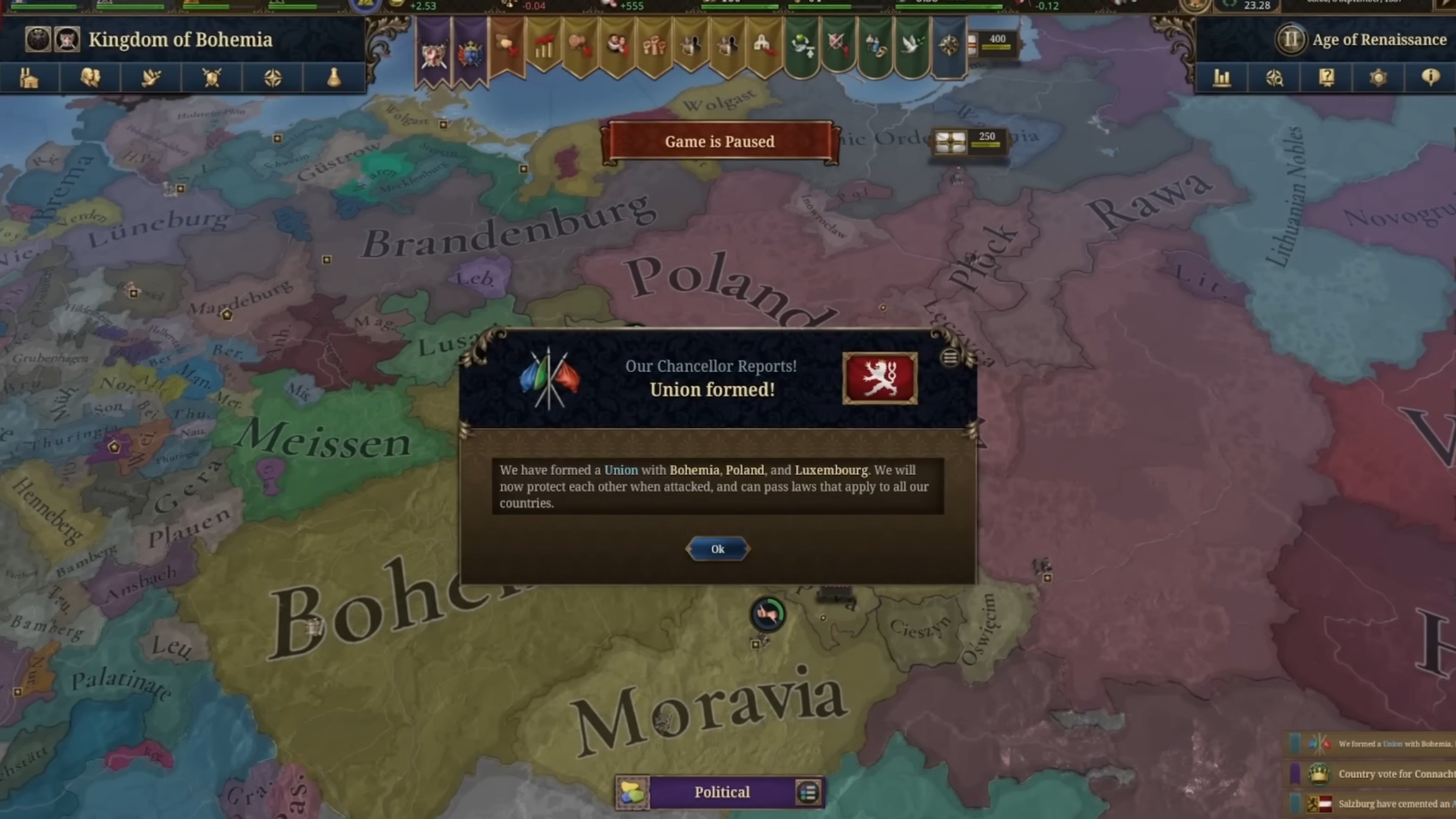In Europa Universalis 5, diplomatic strategies like matrimonial alliances and shared monarchies allow nations to expand sovereignty without military conflict. Adult characters may wed others of opposing genders unless clerical estate members adhering to Catholic, Orthodox, or Miaphysite faiths. This analysis explores union mechanics and pathways to establishing consolidated rule through hereditary claims.
Marital Alliances in EU5: Categories and Impacts

Three distinct marital systems govern political relations:
- Sovereign unions
- Aristocratic bonds
- Commoner partnerships
Dynastic Alliances Between Ruling Houses
Inter-dynastic marriages require mutual acceptance influenced by diplomatic relations, cultural affinity, hierarchical standing, and succession proximity. Geographical displays highlight receptive realms in verdant hues during proposal phases. Prestige gains fluctuate based on heirs’ political relevance and monarchical disparities.
Peerage Marital Arrangements
Domestic noble unions occur exclusively within tribal, horde, or monarchic governance systems. Such alliances forbid consanguineous pairings among aristocratic lineages.
Non-Noble Matrimonial Options
Male rulers may opt for plebeian spouses without designated partners, incurring governance penalties including 20% reduced administrative capacity and social standing. Though suboptimal, this remains preferable to bachelorhood restrictions. Eunuch characters are barred from such arrangements.
Consolidating Power Through Hereditary Claims




Shared monarchy emergence typically stems from heirless monarchs producing joint successors through cross-border royal matches. Successful unification requires identical succession protocols between realms. Diplomatic enhancements for alliance acceptance include:
- Bolstering confidence via reputation expenditures
- Cultivating favorable international perceptions
- Prioritizing diplomatic resource allocation
- Targeting religiously and politically aligned states
Supranational Governance Frameworks
Consolidated realms organize under Union International governance structures, featuring mandatory defensive pacts and collaborative military ventures subject to legislative approval. After fifty years with enacted integration statutes, constituent nations may formally merge through processes akin to vassal absorption.





